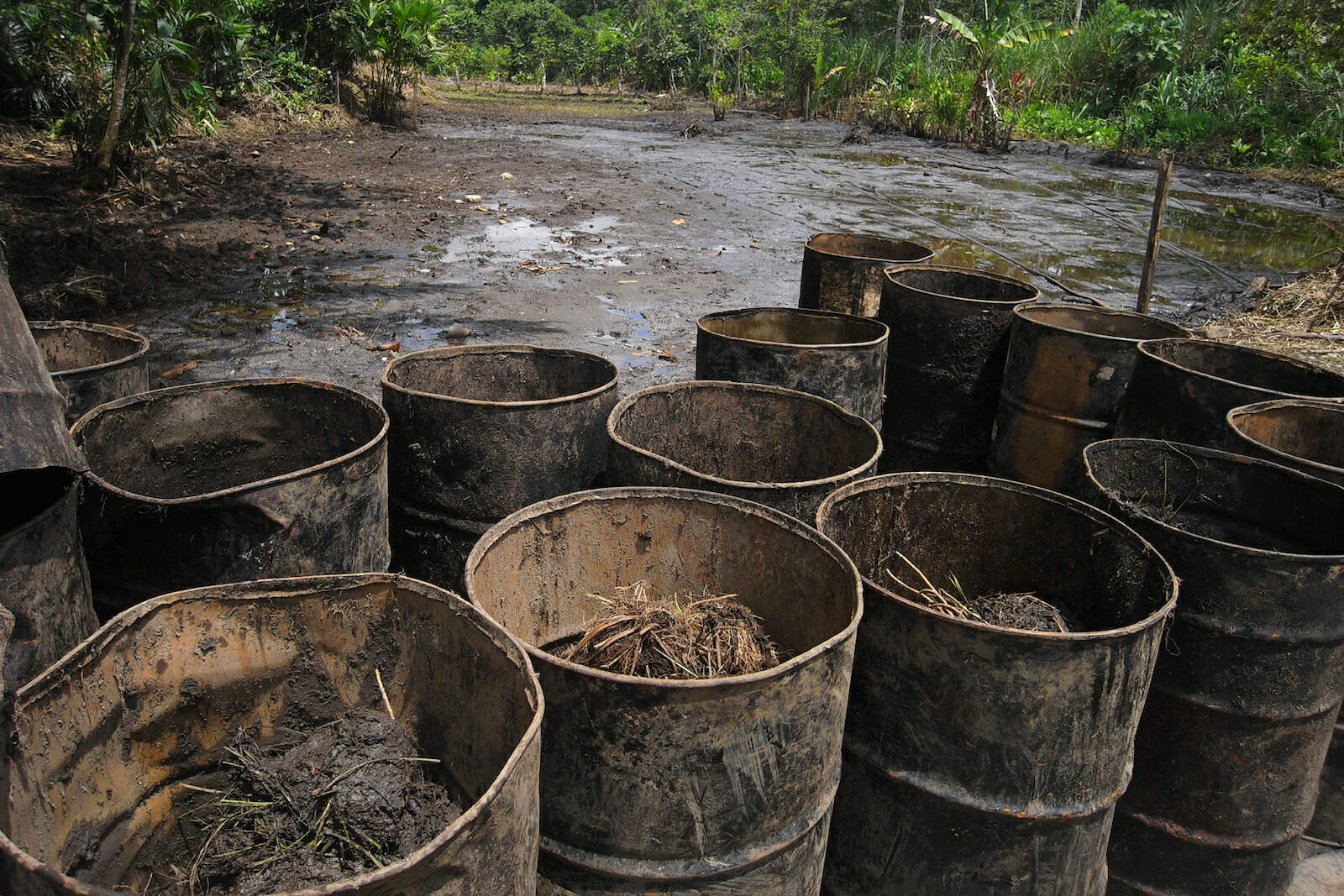
Protecting Progress: South America’s Battle with Chevron
“Everyone wants to come to Brazil, and if we are not strict with [Chevron], this place is going to turn into a pool of oil.” – Carlos Minc, Brazilian Environmental Minister, Financial Times
The oil spill 230 miles off Brazil’s coast last November was, when compared to other international environmental disasters, relatively small and easily contained. What captured the world’s attention was not the spill itself, but the Brazilian government’s reaction. Domestic and international criticism concerning the penalties levied against Chevron focused primarily on the disparity between the leak’s size and the nearly $20 billion in fines currently being fought over in civil court. For many who believe the government has over-stepped its bounds the penalties against Chevron stem from the populist and nationalistic ideologies to which it adheres.
The critics fear that the clouded, ideologically driven fines will be a disincentive for foreign corporations looking to invest in Brazil’s domestic market. The Brazilian government is, rightfully, not as pessimistic about its ability to draw in international investment. Newly discovered oil fields off the Brazilian coast have the potential to produce 50 billion barrels, which would generate massive revenues for any corporation able to receive drilling contracts.
With many national oil companies throughout the world already vying for rights to drill, the willingness of Western oil companies to take part in the venture will not deter Brazil from the developing the fields and funding the nation’s modernization programs it began in the mid-1990s.
Transforming Regional Markets
Since Argentina’s collapse in 2002, many Latin America’s markets have become increasingly interested in maximizing country specific advantages that will further regional integration and economic growth. Shifting economic priorities has led to national and regional growth. Even with its economic successes, Latin America’s progress has drawn the ire of many free-marketers, for many countries had to shed portions of the neo-liberal policies – which had been dictated to them through loan programs managed by the World Bank and the IMF – they rigorously adhered to for decades, in order to achieve success.
The region’s movement away from some of the underlying principles defining Western-style capitalism has prompted captious remarks from the international community; however, the focus on positive-sum strategies for the region is the reason Latin America is becoming increasingly prosperous (with discussions of a Latin American Consensus), while the West remains uncertain on how to properly institute austerity programs.
What many critics fail to realize is that comparative advantage is a widely ignored tenant in a capitalistic philosophy that primarily functions within a zero-sum framework.
In An Inquiry into the Nature and Causes of the Wealth of Nations, Adam Smith did believe that economic success could be achieved with investments in foreign markets; however, he also acknowledged that the progress made would be limited and untenable, due to external factors. He theorized that, as if “led by an invisible hand,” many of the investments and industries spent overseas would eventually return home and concentrate on the development of domestic and regional markets.
Latin America’s initial success can be attributed to the increasing demand for natural resources. However, if the countries of the region remain focused solely on that facet of their economies they would not have been able to develop an economic strategy beyond the near to medium term. Allocating finances from natural resource exportation and investing in domestic and regional modernization afforded the region the ability to progress beyond the previously self-imposed limitations; a shift from factor-driven to efficiency-driven economies.
The progress made throughout Latin America over the past decade may not have been the path taken by the international community to achieve success. However, it is not a complete divergence from capitalism’s underlying philosophies. Regional investments that have reinforced domestic markets have led to the achievements theorized by Adam Smith. For most nations, markets expanded while a renewed solidarity between countrymen and neighboring countries emerged.
The capitalistic structure espoused by the international community had been tried in the region, for decades, under the direction of international financial organizations. The policies and programs implemented played a significant role in the failures that have undermined regional development. Coerced into implementing market strategies the West would not have undertaken (particularly Argentina’s social security privatization during a recession), many countries focused their efforts on natural resource development and state-centric, almost protectionist, policies.
Contemporary success has been achieved through the expansion of production and industrial capacities through partnering development efforts between national agencies and foreign corporations.
Not all efforts have led directly to prosperity, as exemplified in the civil dispute between Brazil and Chevron. With two entities working toward a common goal, but with competing philosophies on what constitutes acceptable consequences both sides end up “devising the perfect measurements for gauging…success and confirming…self-delusions” – to borrow a phrase from Jerry Mander and Edward Goldsmith in The Case Against the Global Economy. Chevron believes it reacted appropriately and accordingly to the expectations outlined by the Brazilian government. Brazil perceives its reaction as a necessary defense against – what it sees as – foreign, exploitative corporations.
The Case Against Chevron
“The procedural conduct of the defendant, few times seen in the annals of the administration of justice in Ecuador, were abusive to the point that…the Court will not even dedicate any more writings to this portion of the decision,” Ecuadorian Judicial Panel ruling on the Ecuador and Chevron case.
Chevron/Texaco has had a long history of legal battles with local and national governments. Today, Chevron is immersed in litigation surrounding pollution standards in California, contamination allegations in Kazakhstan and the Philippines, and human rights violations in the Niger Delta. These cases, as well as numerous others, are enough to make any government wary of agreements signed with the corporation. For Latin Americans, the suit filed by Ecuador against Chevron, in 1993, has defined the relationship between the company and the region. The lawsuit was initiated by 30,000 indigenous people and centered on Texaco’s dumping of 18.5 billion gallons of waste water in the rainforests, causing environmental damage and a myriad of medical issues in local inhabitants.
Last January, Ecuador’s appeals court upheld the guilty verdict it handed Chevron the previous February. The decision meant the company was found responsible for the environmental destruction and ordered to clean the contaminated sites and pay $18 billion in restitution. The court battle – which remains open under appeals – has been closely monitored by many South American governments. Accusations that Chevron has purportedly bribed public officials, its attempts to stall proceedings by filing to relocate the trial, submitting thousands of unrelated documents to slow proceedings, and pressing for RICO charges against Ecuador’s national and judicial leaders have shown the region the lengths the company is willing to take in order to absolve itself of any responsibility.
Conclusion
Chevron’s actions throughout the entire proceedings, coupled with Texaco’s willingness to contaminate the environment to save $3 per barrel, has the potential to influence the manner in which the company is treated, particularly in a region of economic expansion and growing investment.
Brazil’s hard-lined approach to the oil spill has been deemed by national leaders as an acceptable approach against a company that has a long history of impropriety. What Chevron’s executive board does not seem to fully appreciate is that private oil companies need access to Brazil’s fields more than Brazil needs Chevron technology.
For much of what Chevron can offer can be found in any national oil company looking to expand its development opportunities. For all the commentaries and criticisms leveled against the Brazilian government over the penalties placed against Chevron, the primary factor that remains missing is an honest analysis as to whose development these fines will impede: Chevron’s or Brazil’s.

